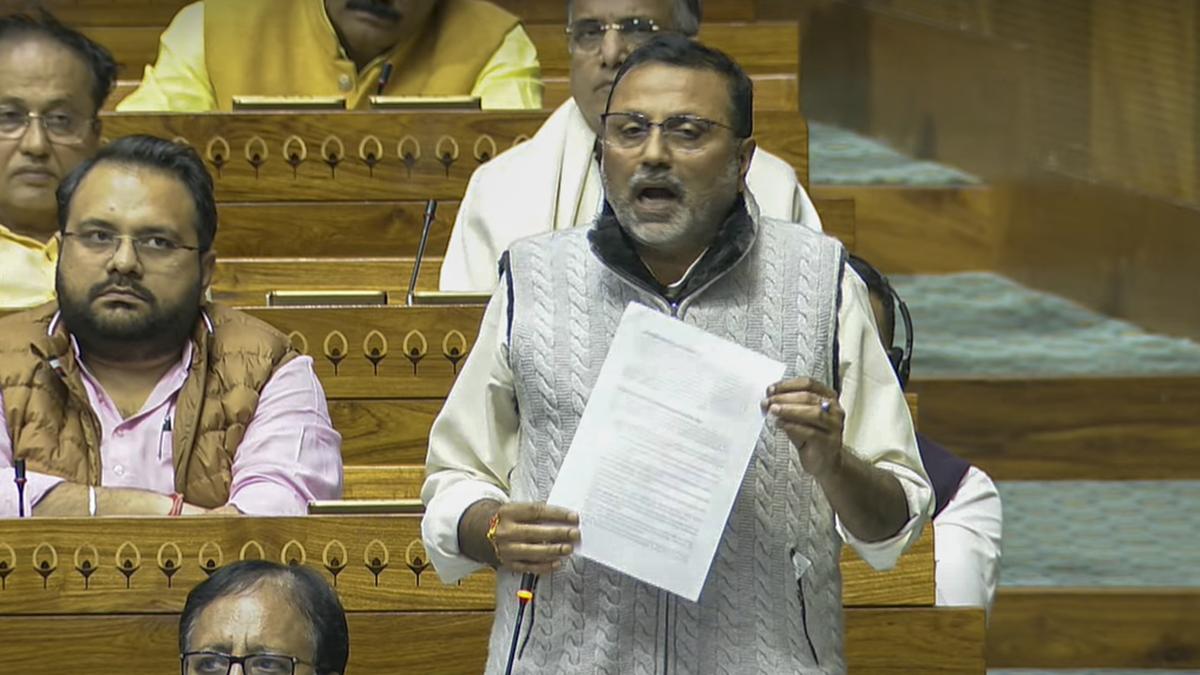 |
|
The Indian political landscape witnessed a significant development on February 4, 2025, when BJP Member of Parliament Nishikant Dubey initiated privilege proceedings against the Leader of Opposition in the Lok Sabha, Rahul Gandhi. This action, stemming from a speech delivered by Gandhi on the floor of the House, highlights the ongoing tensions and sharp divisions within the Indian Parliament. Dubey's letter to Lok Sabha Speaker Om Birla formally requested the initiation of these proceedings, citing Gandhi's alleged distortion of historical facts and attempts to ridicule the nation and diminish the prestige of the Republic. The gravity of the situation is underscored by the potential consequences for Gandhi, ranging from reprimands to more severe penalties depending on the Speaker's decision and the subsequent parliamentary process.
Dubey's letter meticulously outlines the specific points of contention within Gandhi's speech. These points, according to Dubey, constitute a series of inaccuracies and misleading statements. The issues raised by Gandhi, as detailed by Dubey, include claims regarding the manufacturing of mobile phones in India (alleging assembly rather than full manufacturing), the extent of Chinese land encroachment in eastern India, India's absence from US President Donald Trump's inauguration, the recent Maharashtra Assembly elections, and the appointment of the Chief Election Commissioner and Election Commissioners. Dubey contends that Gandhi's assertions on these matters are unsubstantiated and deliberately misleading, designed to portray a negative image of the government and the country.
Central to Dubey's argument is the alleged misuse of Article 105 of the Constitution. This article grants parliamentarians certain privileges in their parliamentary speeches; however, Dubey argues that these privileges are not absolute and are subject to constitutional provisions, parliamentary rules, and accepted norms of conduct. He explicitly accuses Gandhi of exceeding these bounds, operating under the false belief that MPs possess an unfettered right to speak as they please without regard to truthfulness or responsibility. Dubey contends that such an interpretation would lead to parliamentary anarchy. He further emphasizes that even with the privileges afforded by Article 105, MPs remain accountable for their statements and cannot use the platform to spread misinformation or engage in actions that damage the nation's image.
Dubey's accusations against Gandhi extend beyond the specific points of factual disagreement. He paints a picture of Gandhi as deliberately undermining the government, characterizing him as a key figure in a supposed 'India Chapter of Foreign Tool-Kit' aimed at destabilizing the country. This assertion introduces a considerably more serious dimension to the accusations, suggesting a potential conspiracy against the Indian state. The inclusion of this claim suggests that Dubey seeks not just a correction of factual inaccuracies but also a condemnation of Gandhi's alleged broader political motives and actions. The gravity of these accusations necessitates a thorough and impartial investigation by the Lok Sabha Speaker.
The outcome of Dubey's privilege motion remains uncertain. The Lok Sabha Speaker, Om Birla, will have to assess the merits of Dubey's claims and determine whether Gandhi's speech constitutes a breach of parliamentary privilege. Depending on Birla's assessment, various actions may follow, including a reprimand for Gandhi or more severe penalties. The proceedings will undoubtedly involve detailed scrutiny of Gandhi's speech, supporting evidence presented by Dubey, and any counter-arguments presented by Gandhi or his representatives. This process will likely attract significant media attention and contribute to ongoing political debate in India. The case is significant as it sets a precedent regarding the limits of free speech within the Indian Parliament and the responsibilities of parliamentarians in their conduct and statements.
The situation highlights the complexities of balancing free speech with responsible conduct within a parliamentary setting. The debate surrounding Gandhi's speech and Dubey's privilege motion underscores the ongoing tensions and ideological clashes within the Indian political system. The outcome of this case will have ramifications for the future conduct of parliamentary debates and the relationship between the ruling party and the opposition. The Speaker’s decision will play a critical role in shaping the parameters of acceptable parliamentary discourse and influencing future debates on similar issues. The international community will also be keenly watching the outcome, as it reflects the state of Indian democracy and its mechanisms for addressing political conflict within its legislative bodies.
